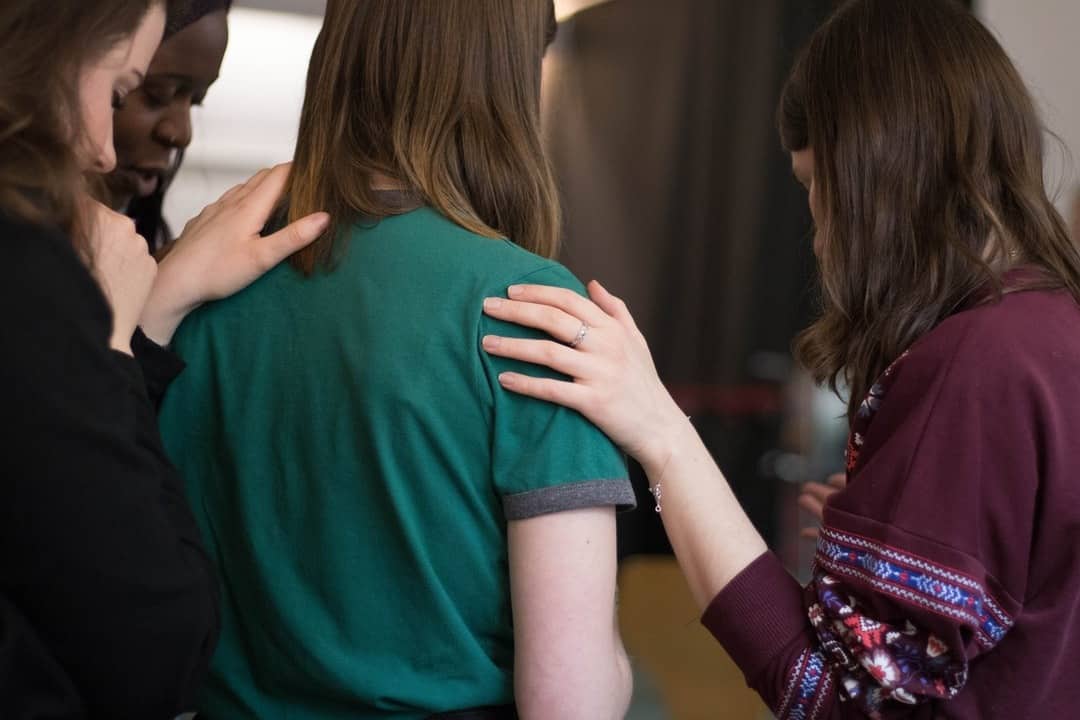Group therapy is a big part of our Villa Oasis San Diego program. However, if you don’t know much about group therapy, you might not know if it would be right for you. This article discusses group therapy’s benefits and how it can help you heal during treatment.
Healing Together
You might have heard of group therapy before but have never tried it. Most of you have seen a person feeling awkward in group therapy. They don’t feel comfortable sharing private information with strangers. People not used to talking about serious issues with people they’ve recently met might not like the idea based on what they’ve seen on TV.
Group therapy doesn’t only need to be people sitting in a circle and sharing, though that can be a part of it. Group therapy can also include group exercises, deep discussion, building trust, and more. Our group therapy allows our clients to heal together instead of struggling alone.
Benefits of Group Therapy: An Outside Perspective
It’s common for people to get lost in their worldview. You might struggle to solve your problems or see an obvious solution right in front of you because you might be blind to your own biases. An outside perspective can let you look at it from another angle. Advice from someone outside the situation can be refreshing, especially if you feel stuck.
Becomes a Reliable Support System
In group therapy, you build deep connections. These people can become your rocks. Over time, you’ll make enough trust to seek support from the people you meet in group therapy. In addition, the people you meet can be there for you outside of treatment or offer an ear when you need someone to listen.
Creates a Safe Space
Sometimes people struggle to heal because they don’t have somewhere safe to discuss and work through their issues. They don’t feel safe discussing their problems because of consequences or fear of judgment. On the other hand, they can share and process the issue in their life without fear of judgment.
You’ll Never Feel Alone
Loneliness can fuel poor mental health and addiction. Group therapy allows you to have people around you that care. You don’t need to feel like you must go through this healing and growing process alone. People in the group care about you and are there for you.
Around Others With Similar Struggles
Group therapy spaces often fall under a theme or a goal. Those who go to group therapy might all have the same problems they want to solve or are healing from similar experiences. People in group therapy come from all walks of life, but because you’re all there for the same reason, you both have that common ground, making it easier to connect.
It gives You a Space to Share.
Sometimes people don’t have the space to speak their minds. They might not have people in their lives who can listen to what they want to share. Not having anyone to talk to about complex issues can make them feel big and overwhelmed.
Group therapy allows you to share what’s on your mind, what’s been difficult, and how it’s made you think. Group therapy is an excellent addition to any treatment program and can be customized to meet your needs.
Improves Communication and Social Skills
Learning how to socialize and talk to others is an important skill. You might know how to speak to others but still have a difficult time relating to others. Group therapy can teach you skills like active listening, how to offer sound advice, and how not to be afraid to talk to others candidly.
Keeps You Accountable
If you have things in your life that you want to improve, address, or have goals that you want to pursue, it helps to have people who check up on your progress. Sometimes people can get off course when solving problems or completing tasks. In group therapy, you can meet with others who are aware of your dreams and goals and can ask about them. Knowing that someone might ask about your progress can motivate you to complete a plan or stay focused.
Everything Is Confidential
In group therapy spaces, everyone agrees that what is shared never leaves the room unless it’s an emergency. You don’t need to worry about others discovering secrets or emotions you don’t want them to know. It truly is a safe space to share.
Take the First Steps
Group therapy can be an eye-opening experience, especially if you feel lost and need direction or support. It can be hard to open up about your challenges, especially to strangers, but group therapy is always a safe space. Having people, you can confide in during difficult times can be a game-changer.
In addition, group therapy often includes people struggling with the same issues as you, which can help you feel less alone. Connecting in group therapy outweighs any fears or concerns you might have. So consider giving it a try!
You don’t need to be alone if you struggle with substance use. Some people can listen to your story and help. If you’d like to learn more about our group therapy program or our luxury rehab center, call Villa Oasis San Diego today at (323) 739-8673.




